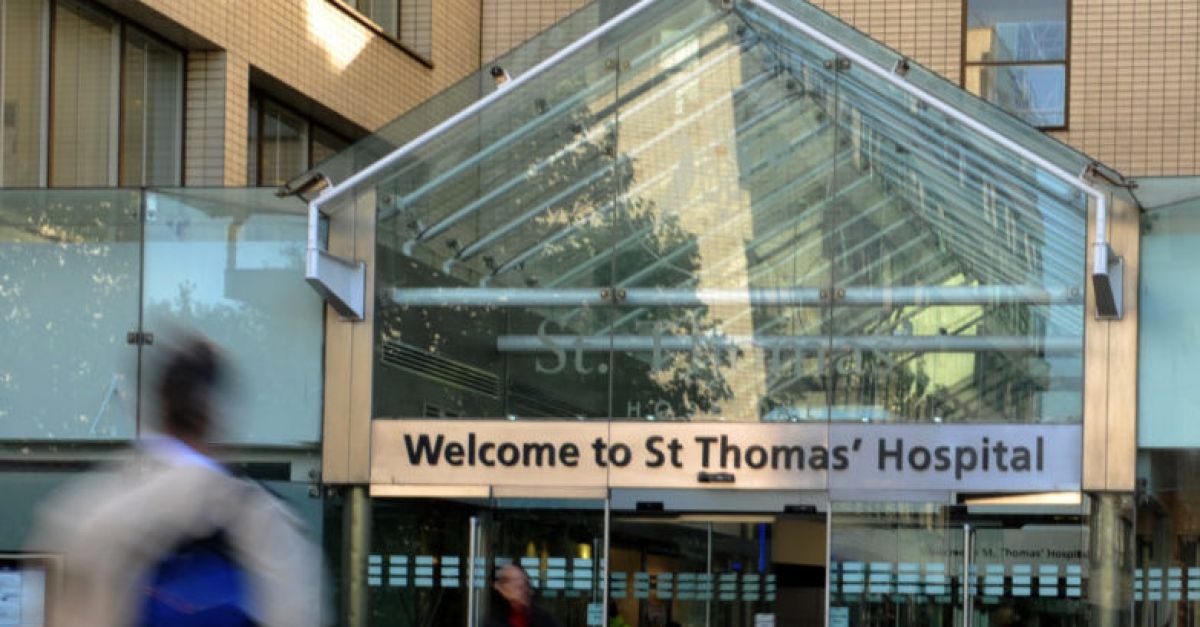The former head of the once-prominent startup Outcome Health should serve 15 years in prison, and two other former executives should serve 10 years, after the three were convicted of fraud, government prosecutors told a federal judge Friday.
Former Outcome CEO and co-founder Rishi Shah is scheduled to be sentenced June 25, after a jury found him guilty on 19 of 22 counts in April 2023. Co-founder and former President Shradha Agarwal and Brad Purdy, the company’s former chief operating officer and chief financial officer, are scheduled for sentencing June 26 and June 27, respectively.
Government prosecutors are seeking 15 years in prison for Shah and 10 years in prison for Agarwal and Purdy, and want the three to pay $455 million in restitution.
The former Chicago-based Outcome Health rose to success selling advertising to pharmaceutical companies, and running those ads on TVs and tablets that Outcome installed in doctors’ offices and waiting rooms. During the trial last year, government prosecutors alleged that Shah, Agarwal and Purdy lied about how many doctors’ offices had screens and tablets running their content. Prosecutors said they then used those false numbers to overcharge drug companies for advertising, and inflated revenue figures used to get loans and raise money from investors.
Over the years, Outcome was able to raise nearly $1 billion from lenders and high-profile investors, including a fund co-founded by Gov. J.B. Pritzker and units of Goldman Sachs and Google. At one point, in 2017, Outcome employed more than 500 workers and had a reported valuation of more than $5 billion.
The fraud came to light when a former Outcome analyst contacted The Wall Street Journal, which ran an article in 2017 detailing the alleged problems at Outcome.
“Rishi Shah was the architect of a billion-dollar fraud,” prosecutors wrote in their sentencing memo, which was filed Friday in U.S. District Court for the Northern District of Illinois. “Brick by brick, lie upon lie, and rationalization after rationalization, Shah built a rotten foundation at Outcome. Pursuing his ambition to become a billionaire founder, Shah was the driving force behind a dizzying array of lies to clients, lenders, investors and an audit firm.”
Shah should spend 15 years in prison because of the “pervasiveness, scope, impact and duration of the scheme, and the cunning with which it was executed” as well as to “deter other executives from engaging in similarly extensive, harmful fraud schemes on their customers and financiers,” prosecutors wrote.
Richard Finneran, an attorney for Shah, said in a statement to the Tribune on Monday that the government’s recommendation of 15 years is nearly twice what the U.S. Probation Office has indicated is an appropriate sentence for a case like Shah’s and, “We trust that the Court will consider all of the circumstances of this case, including the substantial restitution provided to lenders, institutional investors, and customers in deciding whether it is necessary to impose a term of incarceration.”
Prosecutors are seeking 10 years for Agarwal, who was convicted on 15 of 17 counts. They wrote that: “As Outcome’s co-founder, Chief Strategy Officer, and later its President, Agarwal had the unique ability to impact the company’s direction—whether it grew through transparency or dishonesty. She joined Rishi Shah, her co-founder and co-defendant, and chose the latter.”
Attorneys for Agarwal, however, argue in court documents that the penalties against her should reflect that she was “sidelined from matters related to the company’s growth strategy and fundraising” and “was left in the dark on many details.”
Purdy, who was convicted on 13 of 15 counts, should also serve 10 years, prosecutors wrote. Purdy “was at the center of the fraud that Rishi Shah and Shradha Agarwal began” and “could have stopped it,” prosecutors wrote.
Attorneys for Purdy said in court documents that he shouldn’t be sentenced to more than two years in prison, partly because he was in his 20s when he was at Outcome, and: “was caught up in something much bigger than himself. Although he plainly did not have the experience or expertise to properly handle all the roles thrust upon him, Mr. Purdy—quite regretfully—was unwilling to admit that he was in over his head. It was this inexperience, eagerness, and a fear of failure that led to his undoing.”
Throughout the 10-week-long trial last year, defense attorneys placed the blame on a fourth former Outcome employee, Ashik Desai. Desai had already pleaded guilty to one count of wire fraud before the trial, and he testified that he falsified screenshots and return-on-investment reports without his bosses’ knowledge. As part of an agreement with the government, Desai could get a reduced prison sentence because he testified at Shah, Agarwal and Purdy’s trial. Desai is scheduled to be sentenced in September.
The upcoming sentencing hearings follow years of attention focused on Outcome’s rise and fall. Many in Chicago’s business and tech communities have been watching the events closely — with the case at times focusing on the line between normal growing pains faced by startups versus actual fraud.
A number of business and community leaders have submitted letters to the court asking for leniency in sentencing.
Steven Collens, CEO of the prominent health care technology incubator MATTER, based in Chicago, wrote that he temporarily worked in Outcome’s office while MATTER was building out its office, and got to know Agarwal over the years. He wrote that he’s “followed this case with the interest of both a friend who believes in Shradha, and an investor who lost a lot of money.”
Collens asked that the judge consider “a light sentence,” writing: “She is a warm, kind and generous human being who worked as hard as anyone I’ve known and always made time to be helpful. She does not deserve to go to prison.”
Jonny Imerman, co-founder of the Chicago-based nonprofit Imerman Angels, asked the judge in a letter to take into account during sentencing that Agarwal “has always gone out of her way, with time and resources, and our friendship and partnership has been 100% positive to me personally and to Imerman Angels.” Imerman also wrote to the judge on behalf of Shah.
Shah, Agarwal and Purdy’s sentencing hearings were repeatedly rescheduled over the last year as Shah and Agarwal argued that they weren’t able to hire their first choice of lawyers for the trial because too much of their money was frozen before the trial began.
Judge Thomas Durkin, earlier this month, denied Shah and Agarwal’s motions for a new trial or dismissal of the indictment against them.
In his opinion and order, Durkin wrote that because Shah and Agarwal did not challenge the overly broad restraint of their assets before their trial, they cannot do so now. He also wrote that even if fewer of their assets had been frozen before the trial, they still would not have had enough liquid assets to afford to hire their preferred attorneys.
Finneran said in a statement to the Tribune that Shah is using “a portion of the assets the Government wrongly restrained to retain former Acting U.S. Solicitor General Neal Katyal to represent him on an appeal of his conviction.”
Signup bonus from



